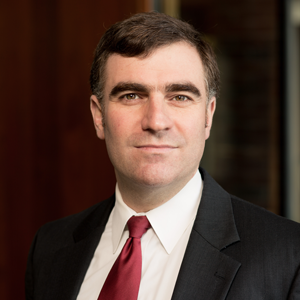Vijay Govindarajan, the Coxe Distinguished Professor of Management
|
Reverse Innovation in Health Care: How to Make Value-Based Delivery Work
Harvard Business Review Press, July 2018
Vijay Govindarajan, the Coxe Distinguished Professor of Management, and coauthor Ravi Ramamurti, illustrate how reverse innovation is being employed in the health care industry to attack exorbitant costs, uneven quality, and incomplete access to care. Health care innovations from India are being implemented in places like the Cayman Islands to provide low-cost, value-based care. Reverse Innovation in Health Care demonstrates how value-based delivery can be made to work in the United States, without the need for a grand plan out of Washington, D.C., agreement between entrenched political parties, or coordination among all players in the health care system.
“Why We Need to Update Financial Reporting for the Digital Age”
Harvard Business Review, June 2018
As a follow-up to their February 2018 analysis on why traditional financial statements are ineffective for digital companies, Vijay Govindarajan, the Coxe Distinguished Professor of Management, Anup Srivastava, associate professor of business administration and the Daniel R. Revers T’89 Faculty Fellow, and coauthor Shivaram Rajgopal interview several CFOs of leading technology companies, as well as senior analysts of investment banks who follow technology companies, and find that their experiences support prior research, illustrating that a change needs to be made.
|
Anup Srivastava, associate professor of business administration and the Daniel R. Revers T'89 Faculty Fellow
|
B. Espen Eckbo, the Tuck Centennial Professor of Finance and founding director of the Lindenauer Center for Corporate Governance
|
Recent Presentations
- “Tradeoff Theory and Leverage Dynamics of High-Frequency Debt Issuers,” University of Lille, March 2018
- “Tradeoff Theory and Leverage Dynamics of High-Frequency Debt Issuers,” University of Toronto, May 2018
- “Tradeoff Theory and Leverage Dynamics of High-Frequency Debt Issuers,” Queen's University, May 2018
- “Board Gender Quotas and Firm Value,” Financial Management Association (FMA) European Meetings, June 2018
- Panelist, FMA Doctoral Student Consortium, Financial Management Association (FMA) European Meetings, June 2018
- Panelist, “Corporate Governance and Dual-Class Companies,” Financial Management Association (FMA) European Meetings, June 2018
|
Kevin Lane Keller, the E.B. Osborn Professor of Marketing
|
“Building a Multi-Category Brand: When Should Dissimilar Products Be Introduced?”
Journal of the Academy of Marketing Science, March 2018
When companies plan to build multi-category brands by adding new products to their product lines, two questions loom large: (1) whether and (2) when brand extensions perceived as distant (comparatively dissimilar) from the company’s existing core line of products should be introduced. Kevin Lane Keller, the E.B. Osborn Professor of Marketing, and coauthors Jeffrey Parker, Donald Lehmann, and Martin Schleicher explore the second question: when the company should introduce a distant extension within a series of other closer extensions—a decision for which there is little research-based guidance for managers. Building on theories of mental categorization, the authors argue that early (vs. late) introductions of distant brand extensions can be more beneficial for the brand.
Recent Presentation
- “Understanding Brand Stretch,” Iowa State University, April 2018
|
Kusum Ailawadi, the Charles Jordan 1911, TU'12 Professor of Marketing
|
Awards
Kusum Ailawadi, the Charles Jordan 1911, TU'12 Professor of Marketing
- MSI/H. Paul Root Best Paper Award for Significant Contribution to the Practice of Marketing for “How Well Does Consumer-Based Brand Equity Align with Sales-Based Brand Equity and Marketing-Mix Response?”
- Finalist, Shelby D. Hunt/Harold H. Maynard Best Paper Award for Significant Contribution to Marketing Theory and Thought for “How Well Does Consumer-Based Brand Equity Align with Sales-Based Brand Equity and Marketing-Mix Response?”
Recent Presentations
- Speaker, INFORMS Society for Marketing Science Doctoral Consortium, June 2018
- “How Mobile Self-Scanning Use Influences Consumers’ Grocery Purchases,” ISMS Marketing Science Conference, June 2018
|
Constance Helfat, the J. Brian Quinn Professor in Technology and Strategy
|
“Quo Vadis, Dynamic Capabilities? A Content-Analytic Review of the Current State and Recommendations for Future Research”
Academy of Management Annals, January 2018
Constance Helfat, the J. Brian Quinn Professor in Technology and Strategy, and coauthors Oliver Schilke and Songcui Hu, analyze previous studies to develop a meta-framework that specifies antecedents, dimensions, mechanisms, moderators, and outcomes of dynamic capabilities identified in the literature to date. This framework provides a comprehensive and systematic synthesis of the dynamic capabilities perspective that reflects the richness of the research while at the same time unifying it into a cohesive, overarching model. Their analysis shows where research has made the most progress and where gaps and unresolved tensions remain. Based on this analysis, the authors propose a forward-looking research agenda that outlines directions for future research.
“The Behavior and Capabilities of Firms”
Modern Evolutionary Economics: An Overview, April 2018
Constance Helfat, the J. Brian Quinn Professor in Technology and Strategy, surveys the theory of firm behavior and capabilities and the associated empirical work in a chapter of Modern Evolutionary Economics. It beings with an examination of the fundamental underpinnings of firm behavior in evolutionary economics, namely, organizational routines, and explains how these routines support organizational capabilities. The discussion then turns to the ways in which routines and capabilities emerge and develop, and the implications for firm performance. Building on this understanding of routines and capabilities, Helfat next examines profit seeking search for innovation. Particular attention is paid to dynamic capabilities directed toward change, particularly with respect to technological innovation, given the importance of technical advances in evolutionary economics.
Recent Presentations
- “Disentangling The Microfoundations of Dynamic Capabilities: Evidence From Microdata on Acquisitions,” University of Connecticut, February 2018
- Editors' Summit on Translational Research, Temple University, Fox School of Business, March 2018
- Consortium on Cooperation and Competitiveness Annual Conference, University of California, Berkeley, March 2018
- George Washington University, April 2018
- “TOM Seminar: Capabilities for Ecosystems,” Harvard Business School, April 2018
|
Richard Sansing, associate dean for faculty and the Noble Foundation Professor of Accounting
|
“Corporate Tax Avoidance: Data Truncation and Loss Firms”
Review of Accounting Studies, Forthcoming
Richard Sansing, associate dean for faculty and the Noble Foundation Professor of Accounting, and coauthor Erin Henry, develop a new measure of corporate cash tax avoidance that is meaningful for all observations and reflects the extent to which a firm is tax-favored. They examine the extent to which inferences about corporate tax avoidance over the past 27 years change when the full population of firms is examined, as opposed to a profitable subsample. They also find that the extent to which firms are tax-disfavored is increasing over time and domestic firms are more tax-disfavored than multinationals.
|
Gordon Phillips, the C.V. Starr Foundation Professor and faculty director of the Center for Private Equity and Entrepreneurship
|
“CEOs and the Product Market: When are Powerful CEOs Beneficial?”
Journal of Financial and Quantitative Analysis, Forthcoming
Gordon Phillips, the C.V. Starr Foundation Professor and faculty director of the Center for Private Equity and Entrepreneurship, and coauthors Minwen Li and Yao Lu, examine whether industry product market conditions are important in assessing the benefits and costs of CEO power. They find that firms are more likely to have powerful CEOs in high demand product markets where firms are facing entry threats. In these markets, investors react more favorably to the announcements of granting more power to CEOs and CEO power is associated with higher market value, sales growth, investment and advertising, and the introduction of more new products.
Recent Presentations
- “Venture Capital Investments and Merger and Acquisition Activity around the World,” Southern California Private Equity Conference, University of San Diego, March 2018
- “Venture Capital Investments and Merger and Acquisition Activity around the World,” University of Southern California, March 2018
- “Venture Capital Investments and Merger and Acquisition Activity around the World,” Midwest Finance Association, March 2018
- “Vertical Acquisitions, Integration and the Boundaries of the Firm,” University of California, Berkeley, March 2018
- “Venture Capital Investments and Merger and Acquisition Activity around the World,” Tsinghua University, April 2018
- “Vertical Acquisitions, Integration and the Boundaries of the Firm,” University of Rome, April 2018
- “Venture Capital Investments and Merger and Acquisition Activity around the World,” Yale University Cavalcade, May 2018
- “Venture Capital Investments and Merger and Acquisition Activity around the World,” Financial Intermediation Research Society, June 2018
|
Adam Kleinbaum, associate professor of business administration
|
Awards
Adam Kleinbaum, associate professor of business administration
- ASQ Award for Scholarly Contribution for “Organizational Misfits and the Origins of Brokerage in Intrafirm Networks”
- Innovation Award for “Spontaneous Neural Encoding of Social Network Position,” Social and Affective Neuroscience Society
|
Emily Blanchard, associate professor of administration
|
Recent Presentations
Emily Blanchard, associate professor of business administration
- “Unequal Gains, Prolonged Pain: A Model of Protectionist Overshooting and Escalation,” Dubrovnik Economic Conference, Croatian National Bank, June 2018
- “Unequal Gains, Prolonged Pain: A Model of Protectionist Overshooting and Escalation,” CEPR ERWIT Meetings, Switzerland, June 2018
|
Teresa Fort, associate professor of business administration
|
“New Perspectives on the Decline of U.S. Manufacturing Employment”
Journal of Economic Perspectives, Spring 2018
Teresa Fort, associate professor of business administration, and coauthors Justin Pierce and Peter Schott, use relatively unexplored dimensions of U.S. microdata to examine how U.S. manufacturing employment has evolved across industries, firms, establishments, and regions. These data provide support for both trade- and technology-based explanations of the overall decline of employment over this period, while also highlighting the difficulties of estimating an overall contribution for each mechanism.
Recent Presentation
- “New Perspectives on the Decline of U.S. Manufacturing Employment,” Globalization & Inequality Conference, Becker Friedman Institute for Economics at the University of Chicago, May 2018
|
Ellie Kyung, associate professor of business administration
|
“Slider Scale or Text Box: How Response Format Shapes Responses”
Journal of Consumer Research, Forthcoming
Ellie Kyung, associate professor of business administration, and coauthor Manoj Thomas, explore the effect different payment systems have on how much consumers are willing to spend. Consumer payments elicited on slider scales can be systematically different from those elicited through text boxes because of the endpoint assimilation effect. When people use text boxes to make payments, they evaluate monetary values relative to the starting point of the response range. In contrast, when people use slider scales, they evaluate monetary values relative to the starting point as well as the endpoint of the response range. The research not only documents how slider scales alter consumer payments, but it also explains how the mental number line affects financial decisions.
Recent Presentations
- “How Slider Scales Change Willingness-to-Pay: Recalibrating the Mental Number Line,” Behavioral Decision Research In Management Conference, Harvard Business School, June 2018
- “Slow and Steady versus Fast and Furious: The Effect of Speed on Decision Making,” Behavioral Decision Research In Management Conference, Harvard Business School, June 2018
|
Eesha Sharma, associate professor of business administration
|
Recent Presentations
Eesha Sharma, associate professor of business administration
- “Too Constrained to Converse: The Effect of Financial Constraints on Word-of-Mouth,” University of Pennsylvania, The Wharton School, 2018
- “Too Constrained to Converse: The Effect of Financial Constraints on Word-of-Mouth,” Georgetown University, McDonough School of Business, 2018
- “I Need a Hero: Lower Financial Well-being Increases Interest in Superheroes,” ISMS Marketing Science Conference, June 2018
- “All Debt is Not Created Equal: Effects of Debt Form on Financial Well-being and Debt Decisions,” Society of Consumer Psychology, February 2018
|
Giovanni Gavetti, associate professor of business administration
|
Special Achievement
Giovanni Gavetti, associate professor of business administration
|
Prasad Vana, assistant professor of business administration
|
“Cashback Is Cash Forward: Delaying a Discount to Encourage Future Spending”
Journal of Marketing Research, Forthcoming
Prasad Vana, assistant professor of business administration, and coauthors Anja Lambrecht and Marco Bertini, examine purchase behavior in cashback shopping—a novel form of price promotion online where consumers initiate purchases at the website of a cashback company and, after a significant delay, receive the savings promised to them. The authors analyze panel data from a large cashback company and show that, over and above the predictable effect of cashback offers on initial demand, the later cashback payments further induce and increase future spending through the website. They consider three explanations for these effects, and the leading hypothesis is that consumers fail to treat money as a fungible resource.
Recent Presentation
- “Competition in Service Quality,” European Marketing Conference, May 2018
|














